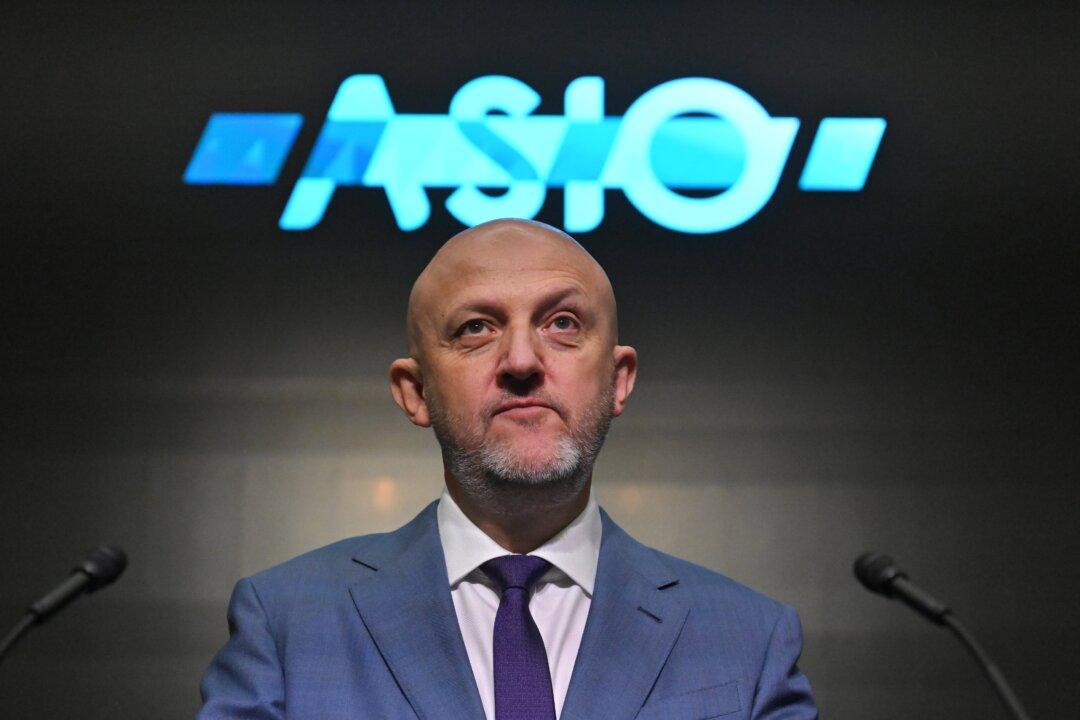The latest annual threat assessment from ASIO, the Australian Security Intelligence Organisation, includes several alarming revelations about the level of threat faced by the country—including from within.
ASIO revealed that while some people collaborating with foreign intelligence agents are victims of deception, others willingly provide information and sometimes high-level access. In one instance, an autocratic foreign regime tried to physically harm Australian-based critics and attempted to find dissidents to make them “disappear.”





